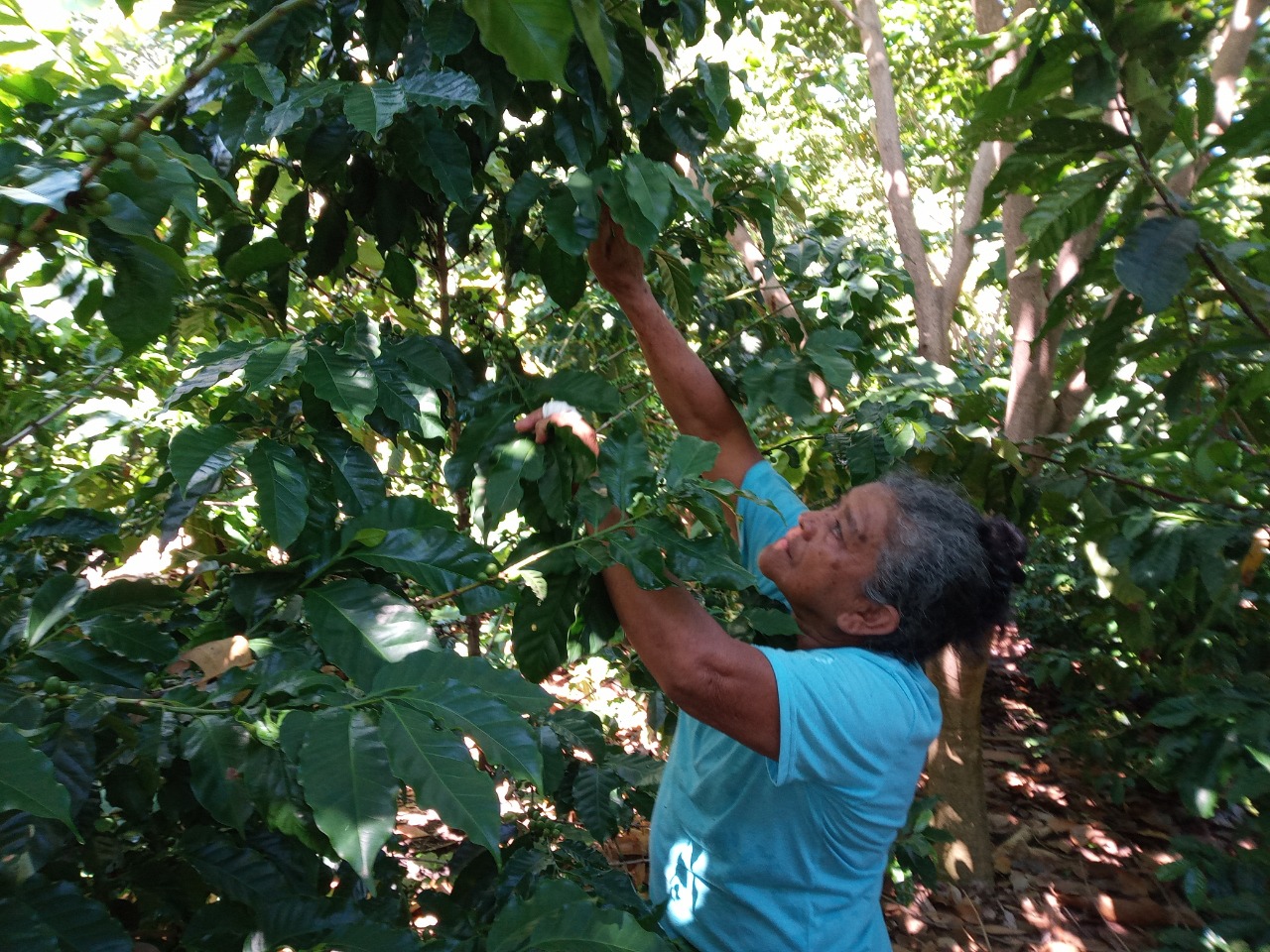María de Los Angeles Alvarado, coop member and program beneficiary, is undertaking key activities that relate to the quality of the coffee. She is putting into practice the lessons learned through the initiative, such as selective picking of the bean, which she then sends to be processed into parchment coffee, in order to obtain a better price.

El Salvador, 5 May 2021 (IICA) – With the technical assistance of the Central American Program for Integrated Coffee Rust Management (PROCAGICA), the men and women of ACODANAGE Cooperative in San Vicente, El Salvador, have opted for joint decision-making and division of labor to improve production quality and diversify income.
María de Los Angeles Alvarado, coop member and program beneficiary, is undertaking key activities that relate to the quality of the coffee. She is putting into practice the lessons learned through the initiative, such as selective picking of the bean, which she then sends to be processed into parchment coffee, in order to obtain a better price.
María is now more aware of the importance of determining the right time to dry process, which is key to ensuring the coffee’s quality.
“When PROCAGICA offered training and technical assistance to improve the farm’s yield, we felt lucky. I learned by observing the processes as a little girl, but when someone is there to show you and assist you in using the right techniques, it’s better. In 2019, I produced 18 quintals of unroasted coffee beans; but in 2020, I produced 33 quintals”, commented Alvarado.
Working on a farm is not easy and the job is usually performed by men. “Often they say to me: ‘you’re very ambitious; not just any woman would brave working so hard’”, Alvarado commented. But she has ample experience.
“I’ve been working the land since I was a little girl; currently, I’m trying to get the most out of the three manzanas that I have. When the program offered to support us with the seed bank, biofertilizer preparation and training, for example, I was one of the first in the co-op to say that I was willing to learn and implement whatever was necessary to improve”, she added.
“We’ve followed the instructions given by PROCAGICA experts and we are working with other co-op members to plan for areas where we need improvement to grow our income and become more competitive”, assured Alvarado.
Just like María, other coffee farmers have made the commitment to follow the technical recommendations that will help them to improve their farm management and production and reap benefits like increased income, reduction of production costs and protection of natural resources, stated Oswaldo Gámez, PROCAGICA technician.
The program supports small farmers in implementing actions with a comprehensive focus on renewal, technical extension and education, and strengthening of farmer organizations.
The Central American Program for Integrated Coffee Rust Management (PROCAGICA) is implemented by the Inter-American Institute for Cooperation on Agriculture (IICA), in conjunction with the European Union, and aims to improve the living conditions of the rural population in Central America’s coffee-growing regions.
More information:
Institutional Communication Division
comunicacion.institucional@iica.int











